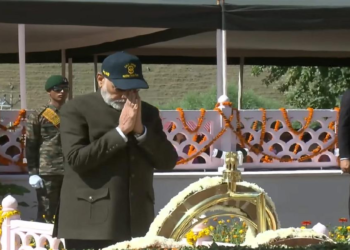These reforms laid the foundation for India’s transition from a state-controlled economy to a market-oriented one, fostering rapid economic growth and attracting foreign investment. PVNR will always be remembered for liberalizing the Indian economy.
2. Stabilizing the Economy:

When PV Narasimha Rao assumed office in 1991, India faced a severe economic crisis characterized by high inflation, depleting foreign exchange reserves, and a balance of payments crisis. Rao implemented bold measures such as devaluing the rupee, reducing import tariffs, and seeking assistance from the International Monetary Fund (IMF) to stabilize the economy.
His pragmatic approach helped restore macroeconomic stability and laid the groundwork for sustained economic growth in the subsequent years.
3. Strengthening Diplomatic Relations:

PV Narasimha Rao was pivotal in bolstering India’s diplomatic ties with other nations during his tenure. He initiated diplomatic overtures towards neighboring countries like China and Pakistan, striving to improve bilateral relations and promote regional stability.
Rao’s efforts culminated in significant diplomatic breakthroughs, including normalizing relations with China and signing the India-Sri Lanka Accord to resolve the ethnic conflict in Sri Lanka.
4. Nuclear Policy:

PV Narasimha Rao demonstrated strategic foresight and leadership in navigating India’s nuclear policy during global uncertainty. Despite international pressure, he maintained India’s stance of nuclear ambiguity, neither confirming nor denying the existence of nuclear weapons.
Rao’s pragmatic approach to nuclear policy helped preserve India’s strategic autonomy while laying the groundwork for future advancements in the country’s nuclear capabilities.
5. Social Reforms and Empowerment:

As Prime Minister, PV Narasimha Rao championed several social reforms to empower marginalized communities and promote social justice. His government introduced landmark legislations such as the 73rd and 74th Constitutional Amendments, which decentralized power to local governments and empowered grassroots democracy.
Additionally, Rao’s administration implemented affirmative action policies to uplift disadvantaged groups, including scheduled castes, scheduled tribes, and other backward classes.
PV Narasimha Rao’s tenure as Prime Minister was marked by visionary leadership and transformative policies that shaped India’s trajectory in the post-liberalization era. His contributions to economic reform, diplomatic outreach, nuclear policy, and social empowerment have impacted India’s development and global standing.
The NDA government’s conferment of the Bharat Ratna upon PV Narasimha Rao recognizes his exceptional contributions to the nation’s progress. It reaffirms his legacy as a statesman of unparalleled significance.













